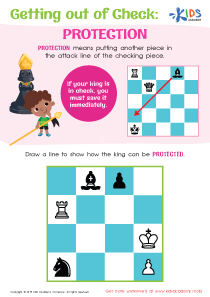Problem-Solving Skills Extra Challenge Chess Worksheets for Ages 7-8
12 filtered results
-
From - To
Unlock your child's potential with our Problem-Solving Skills Extra Challenge Chess Worksheets designed for ages 7-8! These printable resources from Kids Academy offer engaging and educational chess puzzles that foster critical thinking, strategic planning, and analytical skills. Perfect for young minds ready to tackle advanced challenges, our worksheets provide an enjoyable way to deepen understanding of chess while enhancing problem-solving abilities. Boost their confidence and cognitive development with carefully crafted exercises tailored for eager learners. Ideal for both classroom settings and at-home practice, these worksheets are the ultimate tool for sharpening young chess enthusiasts’ minds.
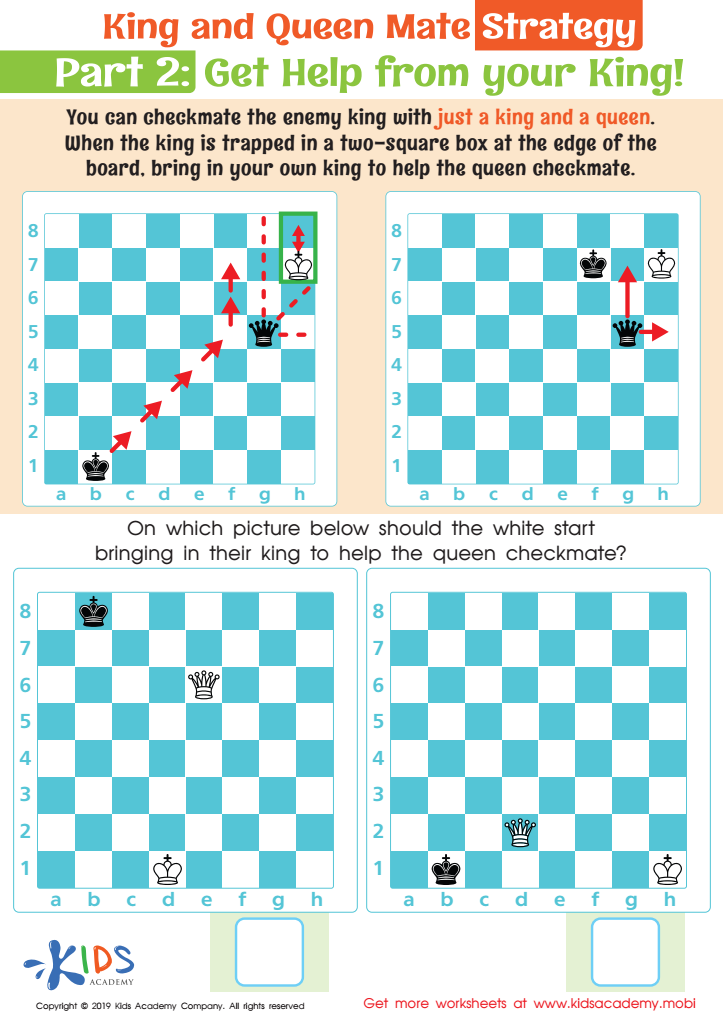

King and Queen Mate Strategy: Part 2 Worksheet
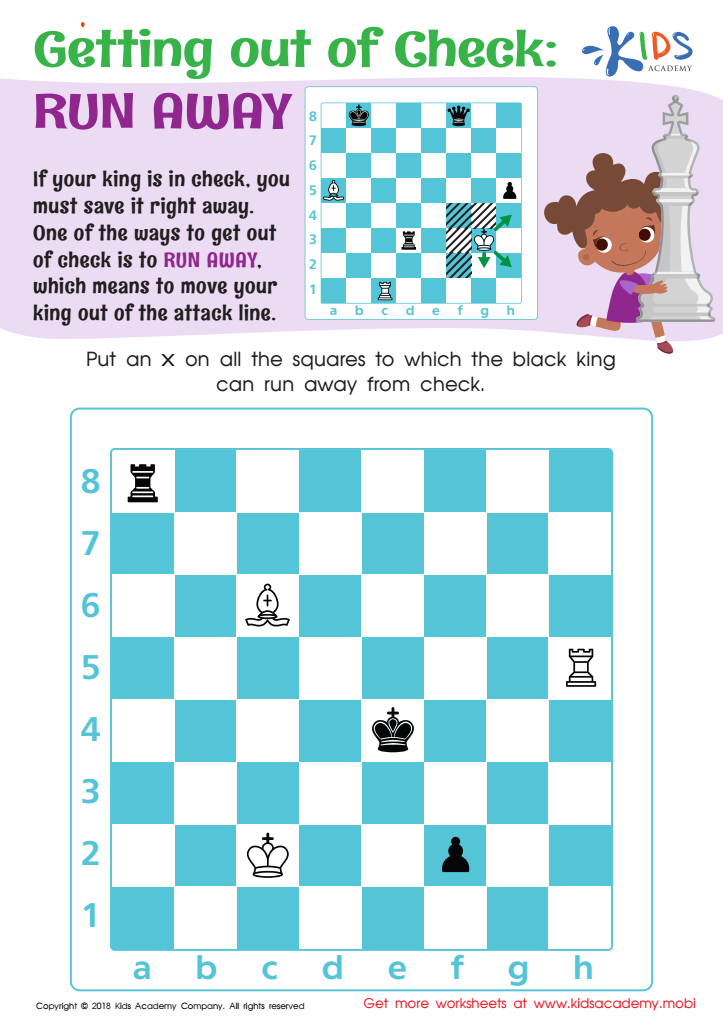

Getting out of Check: Run Away Worksheet
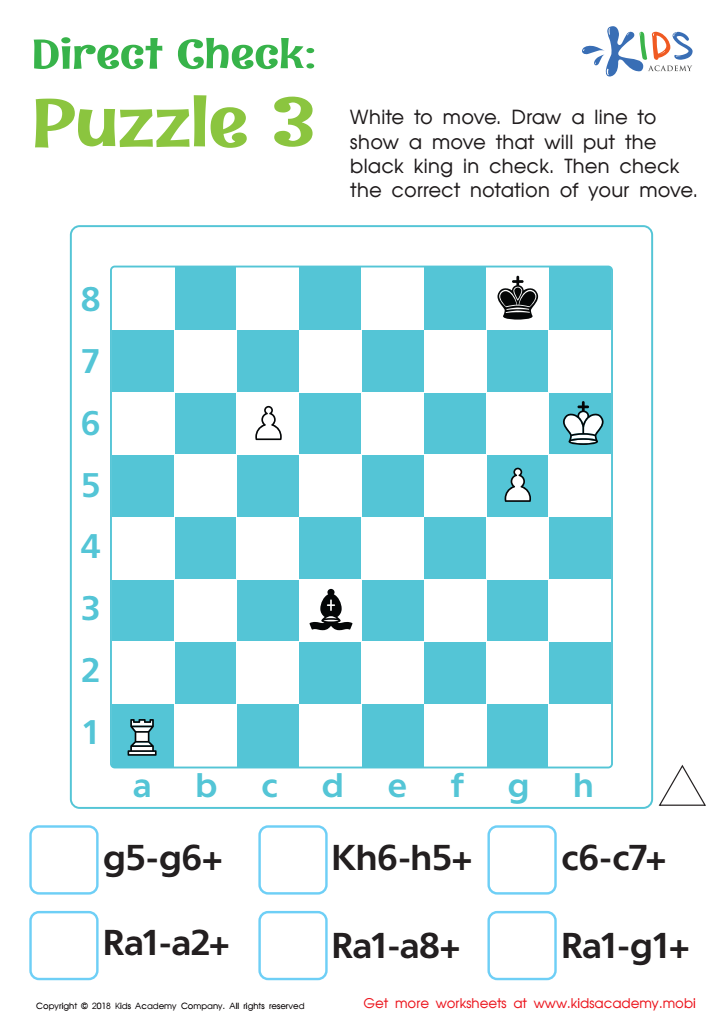

Direct Check: Puzzle 3 Worksheet
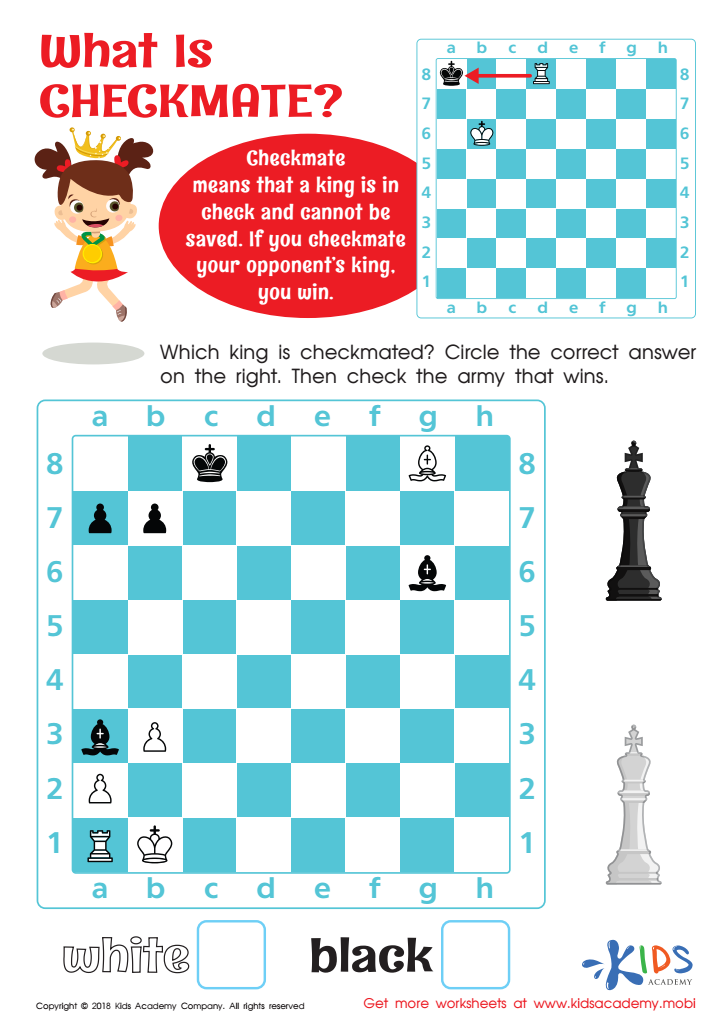

What is Checkmate? Worksheet
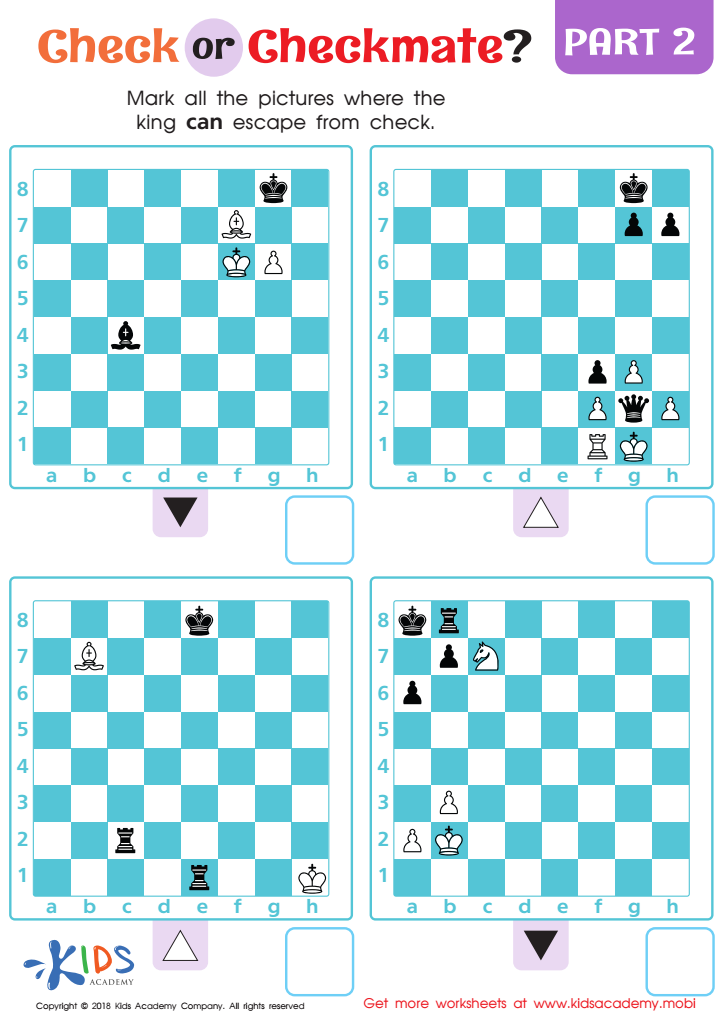

Check or Checkmate: Part 2 Worksheet
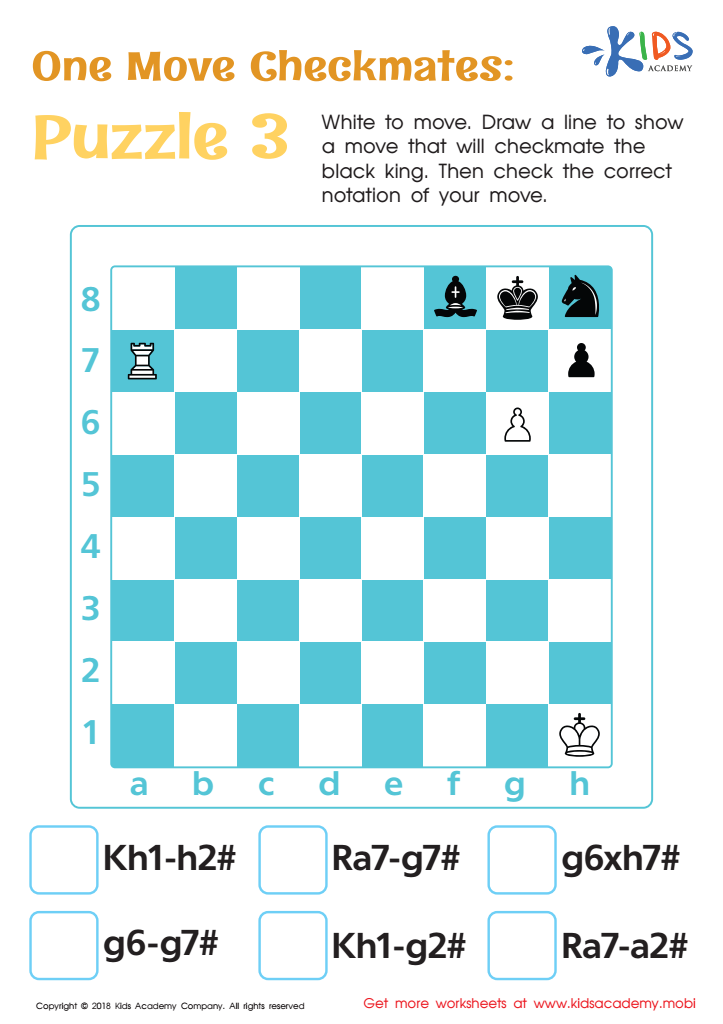

One Move Checkmates: Puzzle 3 Worksheet
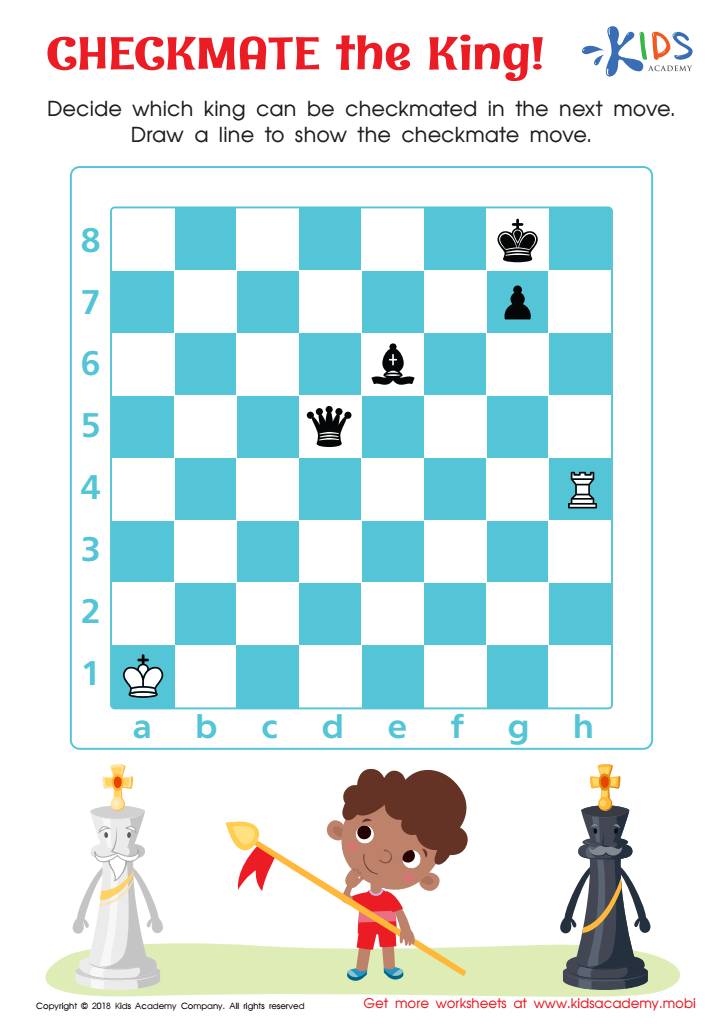

Checkmate the King Worksheet
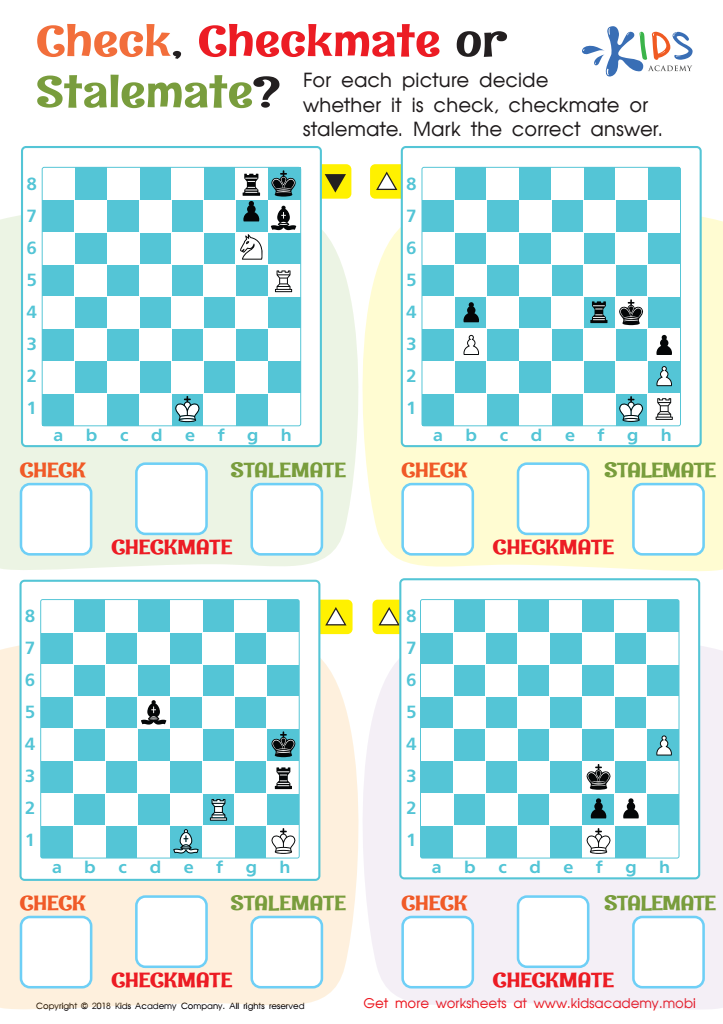

Check. Checkmate or Stalemate? Worksheet
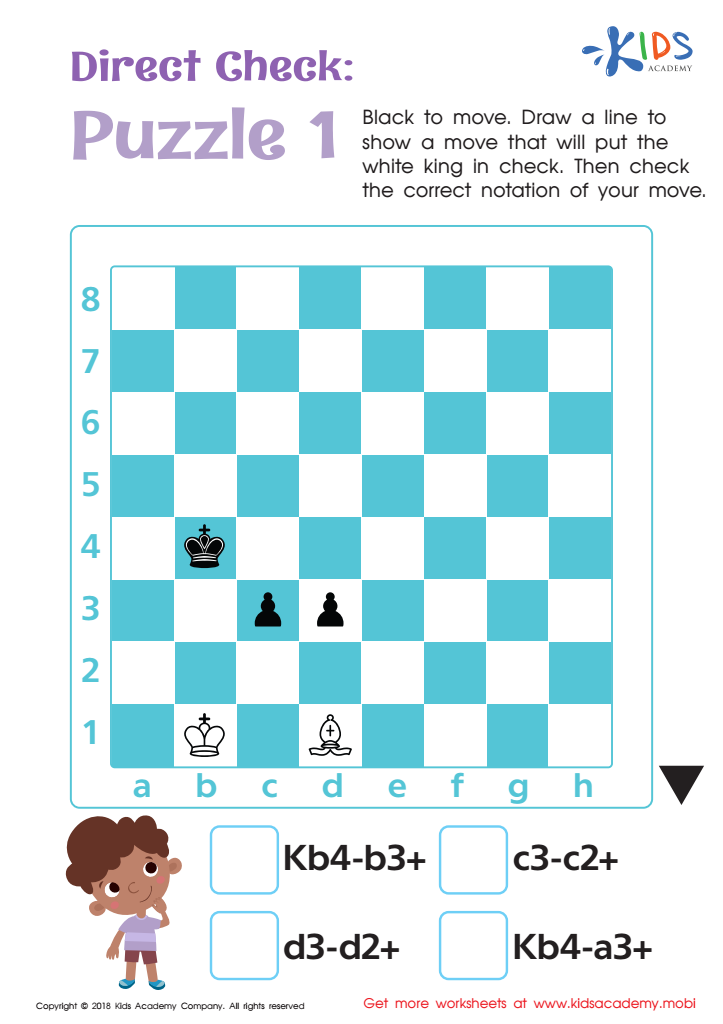

Direct Check: Puzzle 1 Worksheet
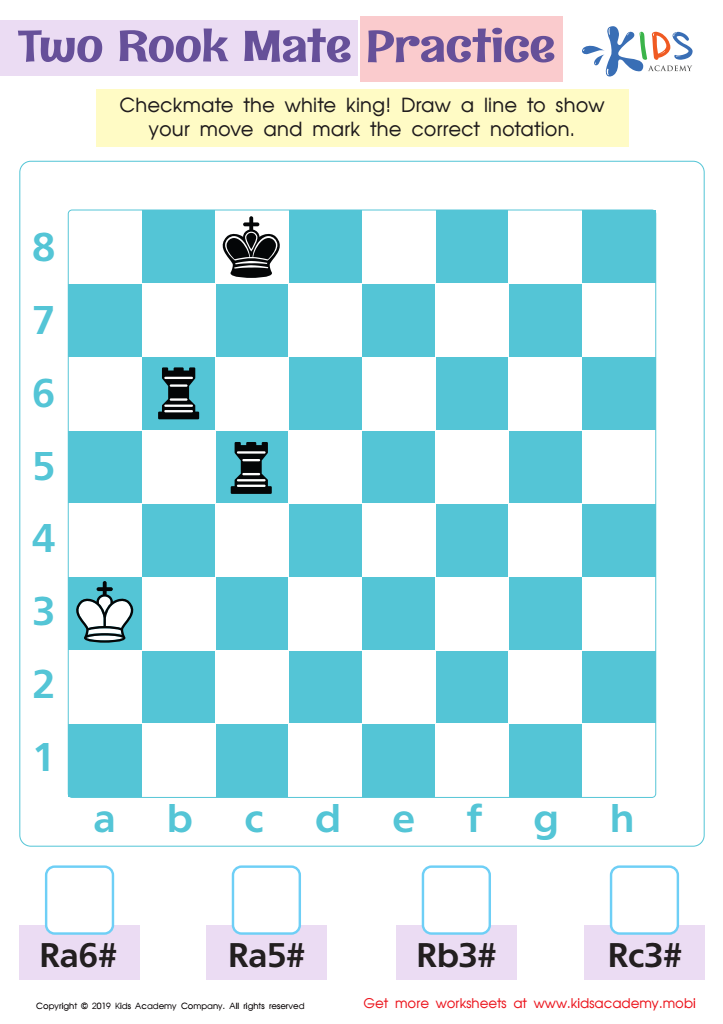

Two Rook Mate Practice Worksheet
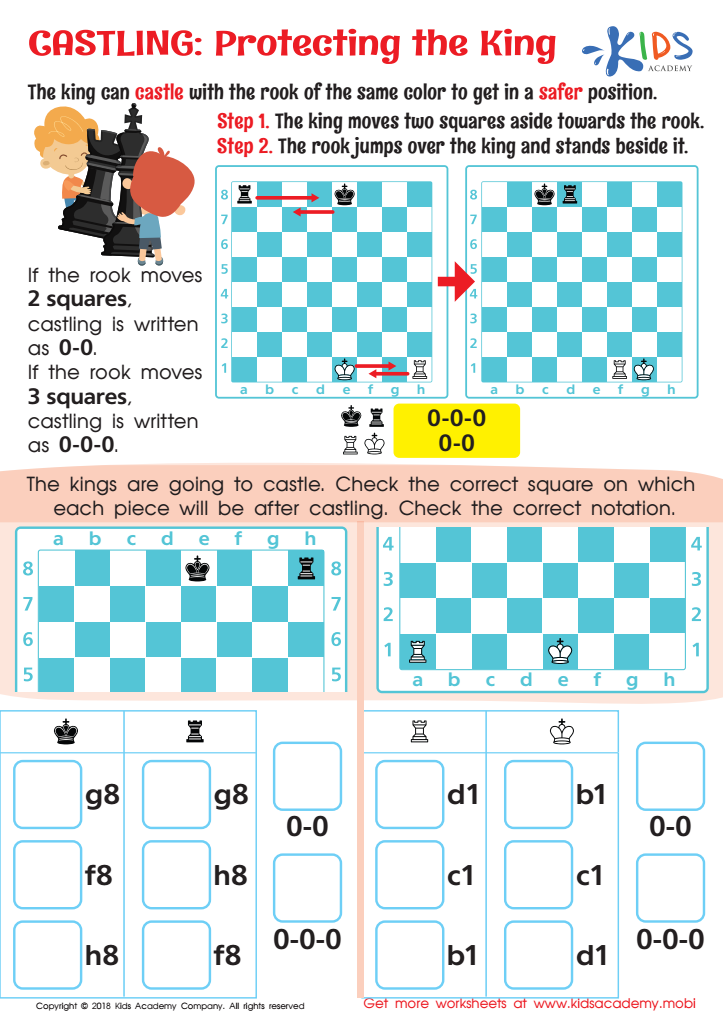

Castling: Protecting the King Worksheet
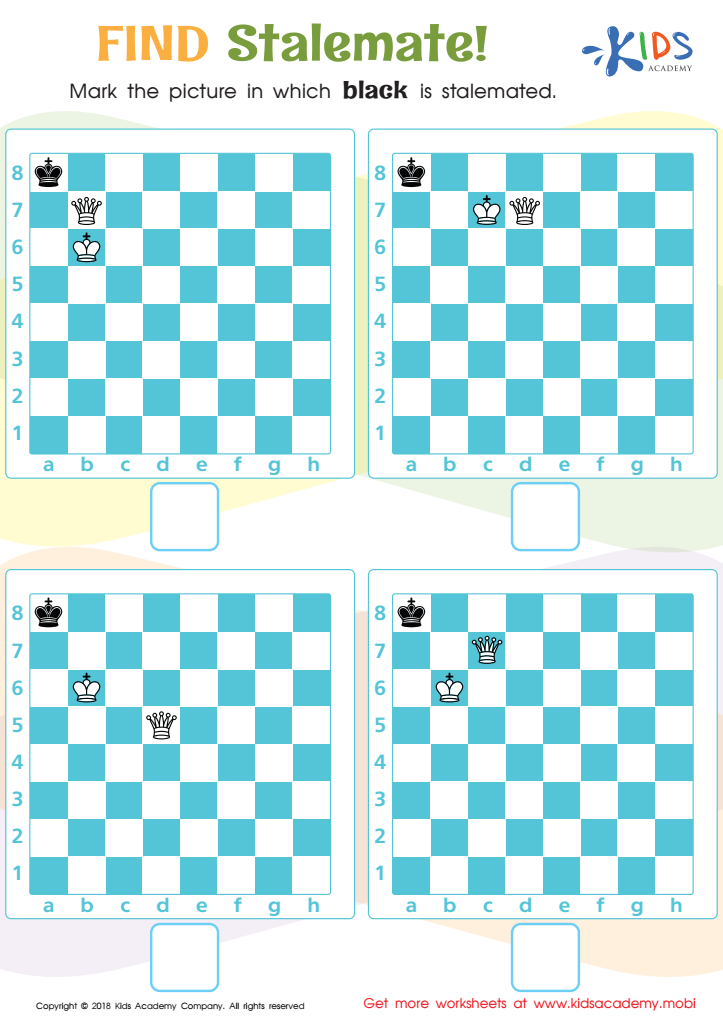

Find Stalemate! Worksheet
Parents and teachers should care about Problem-Solving Skills Extra Challenge Chess for ages 7-8 because it fosters critical cognitive and emotional development in young children. Chess isn’t just a game; it is a rigorous exercise in strategic thinking, planning, and problem-solving. Introducing children in this age group to chess can significantly enhance their ability to consider multiple outcomes and make informed decisions. These skills directly contribute to their academic success, particularly in mathematics and reading comprehension, as they learn to recognize patterns, sequences, and logical relationships.
Moreover, chess teaches patience and perseverance. Young players must practice focusing on their moves while waiting for their opportunities to arise, cultivating an ability akin to delayed gratification. This emotional resilience is invaluable as they face various challenges in their educational journey.
Additionally, chess encourages a growth mindset. Every game offers a learning opportunity, reinforcing the concept that mistakes are a part of the learning process and that persistent effort leads to improvement. This mindset is crucial for lifelong learning and adaptability.
Engaging children in chess also creates social opportunities, allowing for respectful interactions, teaching sportsmanship, and enhancing communication skills. Therefore, prioritizing chess not only equips children with vital problem-solving abilities but also builds character and social competency.

 Assign to My Students
Assign to My Students








